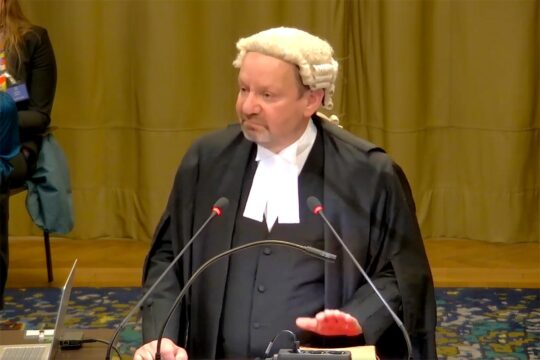The Yugoslav war crimes court was Thursday to rule in an appeal brought by two former top Bosnian Serb officials against a 22-year jail term imposed for their roles in the bitter 1990s war.
Mico Stanisic and Stojan Zupljanin were sentenced in 2013 after being convicted of a campaign to rid Bosnia of Muslims, Croats and other non-Serbs during the deadly 1992-1995 conflict.
The two men were close associates of one-time Bosnian Serb leader Radovan Karadzic, who was found guilty in March on charges of genocide and war crimes for his role in the fighting that killed more than 100,000 people and left 2.2 million others homeless.
Stanisic, 62, a former Bosnian Serb interior minister, and former regional security services chief Zupljanin 64, were convicted of 10 charges of war crimes and crimes against humanity including murder and torture.
They were also accused of the cruel treatment of non-Serbs in municipalities and detention centres in the war triggered by the break-up of the former Yugoslavia after the fall of communism.
The prosecution at the International Criminal Tribunal for the former Yugoslavia has also appealed the sentence as too light "for the seriousness of the crimes."
The tribunal based in The Hague found in March 2013 that the two men took part in a joint criminal enterprise to cleanse non-Serbs from Bosnia's municipalities marked to become part of the Serbian state.
They were found to have allowed forces under their command to engage in the "violent takeover of those municipalities and the ensuing widespread and systematic campaign of terror and violence."
The crimes were committed between April and December 1992 in 20 of Bosnia's municipalities and 50 different detention facilities set up by Bosnian Serb forces, where captives were beaten, tortured, mutilated, sexually assaulted, humiliated and physically abused.
Defence lawyers however filed an appeal against the sentence in December 2015, with Stanisic's lawyer Stephane Bourgon accusing the judges of bias during the three-and-a-half year trial.
Bourgon based his argument on a bombshell letter written by Danish former ICTY judge Frederik Harhoff in mid-2013 in which the judge harshly criticised a sudden raft of acquittals before the court.
In the letter, Harhoff claimed the tribunal's then president, US judge Theodor Meron, had pressured other judges to acquit defendants, suggesting possible pressure from the United States and Israel.
Harhoff was one of a three-judge bench that sentenced Stanisic and Zupljanin.
At appeal, defence lawyers claimed the judge's letter showed he was "on a mission to convict" the accused.
The prosecution argued however they were sentenced by a unanimous bench which based their verdict on the strong evidence.


